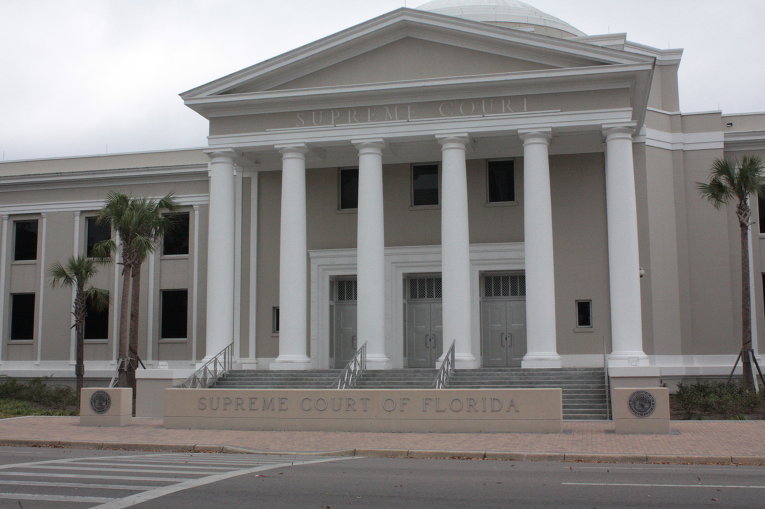MOSCOW, February 20 (RAPSI, Oleg Panfilov) – Death row inmate in Florida was granted a stay of execution by the Florida Supreme Court on the grounds of undetermined constitutionality of lethal injection protocols which are now reviewed by the United States Supreme Court, the court said in a statement on Tuesday.
The court in Florida believes that a stay of execution is proper in the case of Jerry William Correll who received a death sentence for murder of his four close relatives. The court argues that the US Supreme Court has granted certiorari review in Glossip v. Gross (U.S. Jan. 23, 2015) case questioning the constitutionality of lethal injection protocol involving midazolam hydrochloride.
Said protocol is very similar to the one that could be used in Correll’s execution scheduled on February 26 2015.
The court believes that the matter of death penalty should receive a great caution and that “the execution of a death-sentenced individual is at issue, heightened care must be taken, and none more so than when, as here, the method of execution has a reasonable and realistic chance of being declared to be cruel and unusual punishment by the United States Supreme Court”.
Glossip arises out of an action brought under 42 U.S.C. § 1983 by twenty-one inmates on Oklahoma’s death row, challenging the constitutionality of Oklahoma’s lethal injection protocol.
Inmates believe that midazolam as the first drug in Oklahoma’s lethal injection protocol presents a substantial risk of serious harm because it is not a suitable drug to render an inmate deeply unconscious, and that if the inmate is not unconscious and insensate, the inmate will experience severe pain and suffering from the administration of the second and third drugs thus resulting in a cruel and unusual punishment prohibited by the US Constitution.
The Florida Supreme Court’s Judge Canady expressed a dissenting opinion on the matter arguing that “the grant of certiorari on a particular issue does not result in an automatic stay in all cases presenting the same issue”, adding that “Correll has not demonstrated that there are substantial grounds upon which relief might be granted”.



